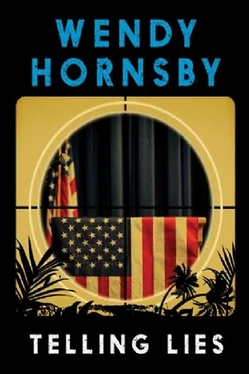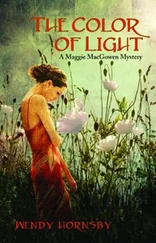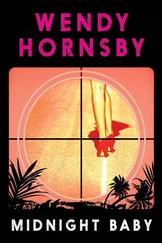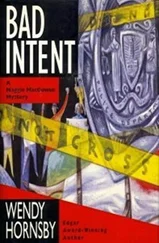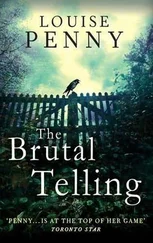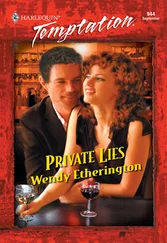The bulb in the entry ceiling fixture was out, so there was very little light, only the general city glow coming through the sitting-room windows and a small night light plugged into a socket beside the bathroom door. Feeling like an intruder, I picked up the only familiar object I saw, a framed photograph of our brother, Marc, and carried it into the sitting room with me.
Still hugging Marc’s picture against me, I closed the curtains, switched on a lamp and looked around.
The house I had left in San Francisco was a mess. I live in the Marina District, a block behind the block that was leveled by the big earthquake a couple of years ago. I lost some very good neighbors, as well as the back wall of my restored wood-frame Victorian.
Under normal circumstances, reconstruction on the house should have been completed, the frame bolted to a reinforced foundation, and all of it painted a bright new color. But the year of the earthquake had also been the year of my divorce.
Scotty and I had invested our time, more money than we had, and a few layers of skin in that house. I suspect that we lavished so much energy and affection on the place because we had nothing left to give each other. By the time the big quake came, the house was a showplace, the marriage was a shambles.
At the present, I have two-thirds of a house, two-thirds of a family. And debts stretching into the millennium.
The contrast between my house and Emily’s could not have been greater. I had left carpenter’s dust, tools, construction debris everywhere. Emily’s apartment, in contrast, was absolute order. Her place wasn’t merely clean, it bordered on being sterile.
Except for Marc’s picture, there was no evidence of emotional baggage hanging on her walls, no eccentricities draped over chairs. I hated the lack of her presence. The only sign that anyone lived here was a copy of Camus’s The Stranger, in the original French, on the table beside the sofa, and a few breakfast dishes draining in a bamboo rack beside the sink: one plate, one cup, one spoon, one knife.
I wanted to know what she had eaten, probably her last meal in her own apartment. I went to the refrigerator to look. With the exception of a very good bottle of Chardonnay, I found what I had expected: a block of tofu, a quart of nonfat, unflavored yogurt, a small loaf of dark-brown bread, and a lot of fruit that wasn’t very pretty-probably organically grown. It was boring fare. It was a boring room.
Twenty-two years ago, Emily had personified revolutionary youth: brilliant, beautiful, dangerous. What I missed in her apartment was some evidence of that passion. I held up Marc’s picture, seeking an answer from his well-remembered face. I found only more questions. Emily had altered the photograph, performed plastic surgery of another sort.
I shivered, and it had nothing to do with wet clothes. On my dresser at home, I had a framed print of the same photograph. Everyone who knew Marc had one. It was the Christmas greeting he had sent from Vietnam, the same shot my mother had hung on the Christmas tree. The prints had arrived in the mail the day we learned he’d been killed, the same day Emily’s face appeared on the cover of Time.
What made the original snapshot so poignant, besides the timing, was that it was so typical of Marc, so silly. He stands in front of burning latrine barrels with a big grin on his face. He’s barechested, wearing fatigues and combat boots. Though he is dirty and sweaty, the smile on his face is truly sweet. In one hand he holds up a red Christmas bulb, in the other a hand-rolled joint that is, in his words, as thick as his dick.
Emily had had her print enlarged. That would have been touching, except that she had had it airbrushed. Censored, if you will. Erasing the shit barrels was one thing, but to wipe out Marc’s joint was tantamount to emasculation.
I was shocked. Why would she do such a thing? I ran over the obvious possibilities: trying to boss him one last time, purging his icon to bring him into line with the new political correctness, a posthumous “just say no”? Emily, as I remember her, would have called this sucking up to the Establishment, caving in to the status quo. I usually thought she was a bit wacko when she spouted off this line, but for her it was completely natural. As natural as seeing Marc with marijuana.
Some of my fondest memories of youth are of walking with my big sister and brother in the hills behind our parents’ Berkeley house. Walking and sharing a joint. For this sin I am now, of course, deeply regretful, but the sky was so blue then, the jokes so funny, the discussion so profound.
Passing me a joint was the first act of recognition by Em and Marc that I was growing up, was becoming somewhat interesting, was more significant than the maggot they labeled me when I was a baby. Tainted as we were by the evil weed, without question those were the best times I can remember.
Recently, I was talked into attending an anti-drug fundraiser cocktail party by an old friend who had gone on a few of those walks with me and Marc and Em. In spite of this folly during his formative years, our friend has gone on to become a very successful, and very straight, investment banker. He was to give a prepared speech at this “do” about drugs and the ruination of America’s youth. But he was pretty bombed on martinis by the time he was to take the podium. He wanted me to go up with him and give a testimonial, admit our youthful sins.
“Glad to,” I said. “I’ll tell them that now and then I used to share a joint with friends and lovers, and I’m sorry as hell about it. It nearly cost me my job. I could handle heightened orgasm, not be misled that conversation was made more brilliant. My downfall was what it did for banana-nut ice cream. Banana-nut ice cream is why I gave up smoking grass. I couldn’t have a joint and not crave banana-nut, I couldn’t eat ice cream and keep an on-camera figure. The choice was clear-career future or marijuana. I gave up the weed.”
“Never mind,” he said.
“It’s the truth,” I said.
“Fuck it,” he said. That evening was the last I ever heard from him.
I was following my wet footprints back toward Em’s sofa when the doorbell rang.
I opened the door and said, surprised, “Ah, Detective Flint.”
“This neighborhood’s a bitch to find a parking place,” he said, taking off his raincoat.
“In a police car? Can’t you just park it anywhere?”
“Not unless I want a ticket.” He was looking around for someplace to hang his coat. “In this town, they even ticket the mayor.”
“Very honorable,” I said, following him into the bathroom, where he draped his coat over the shower door. “Why are you here?”
“You should change out of those wet clothes,” he said. “And turn up the radiator. This place is colder than the morgue.”
“Detective,” I said, “I have things to do, some phone calls to make. Then I plan to take a hot bath and get right back to the hospital.”
“No tub here,” he said. “Have to settle for a shower.”
“When I said I wanted a little time, I meant more than five minutes.”
He was already in the sitting room, looking around. “Go ahead,” he said. “Go change. I’ll look after myself.”
“Go away,” I said.
“Not a chance.” He sat down on the sofa and crossed one knee over the other. He had long, runner’s legs, and I liked the way the gray pinstripes stretched across his thighs. I found this observation to be vaguely disturbing.
Flint put on a thin smile and looked around, taking inventory. “Not much of a decorator, was she?”
“She didn’t spend much time here,” I said. I stood in the middle of the room, wet and shivery and shocked numb. “You should get out of your wet clothes.”
Читать дальше
